The Netherlands once again finds itself at a political crossroads. Less than two years after a coalition government collapsed under the weight of internal tensions, Dutch voters are preparing to decide what kind of leadership they want for their future.
On the 29th of October, Dutch people will be going to the polls to elect a new Tweede Kamer (Dutch lower house). Initially, the next elections were scheduled for 2028, but due to the fall of the 2024 cabinet, snap elections were called for.
On the 3rd of June, Geert Wilders, leader of the far-right conservative party PVV (Party for Freedom), walked away from the coalition due to different views on asylum policies. The cabinet led by Dick Schoof as prime minister ended with his resignation. The upcoming elections thus pose an opportunity for voters to shape the composition of their parliament anew.
The elections held in November 2023 led to talks that concluded in 2024, with the coalition appointing the independent Schoof as prime minister. The coalition was formed by the Party for Freedom (PVV), the largest party in the House of Representatives, with the People’s Party for Freedom and Democracy (VVD), New Social Contract (NSC), and the Farmer–Citizen Movement (BBB). The coalition was marked by its delicate nature and Wilders’ inability to converse with his fellow coalition members, often alienating them due to his narrow, inflexible views on migration, asylum, and social policies.
As the elections approach, a first debate was held on the 12th of October. It was expected that the populist nature of Wilders would take centre stage; however, he withdrew from the campaign and did not participate in the debate. [Earlier in the week, he had been mentioned in the list of targets of a terrorist group, and so, for security reasons, he decided not to participate in the debate, even after the group had been arrested, security had confirmed it to be safe, and possibilities for venue changes and online allocations were suggested.] In his absence, the leader of D66 (Democracy 66), Rob Jetten, joined in his place.
The debate featured Dilan Yeşilgöz, the leader of VVD (People’s Party for Freedom and Democracy, a conservative-liberal party), Henri Bontenb from CDA (Christian Democratic Appeal), Frans Timmermans from the recently combined GroenLinks-PvdA party (social democracy, green politics), and Rob Jetten. Key debate topics included asylum policies, how to address the current housing crisis, health care practices, and issues in Gaza. Despite party leaders fixating on the language of the debate rather than the policy proposals and personal attacks, the key topics of the election agenda were raised.
Given Wilders’ absence from this weekend’s debate, other party leaders had the opportunity to present their positions more prominently. This offers a hopeful outlook, as his strongly right-aligned views were not the focal point, allowing voters to engage with other perspectives. Considering Wilders’ rigid stance on migration during the previous government, he may have alienated not only other parties but also segments of his own voter base.
According to polling conducted at the beginning of October (https://www.ipsos-publiek.nl/actueel/ipsos-io-zetelpeiling-surplace-voor-de-eindfase/), support for the PVV has declined compared to 2023, yet it remains the most popular party. The most notable change is the decline in support for the VVD and NSC, two former coalition parties. It is also key to highlight the rise in support for CDA, a party that has previously stated its preference to work with the VVD rather than the PVV.
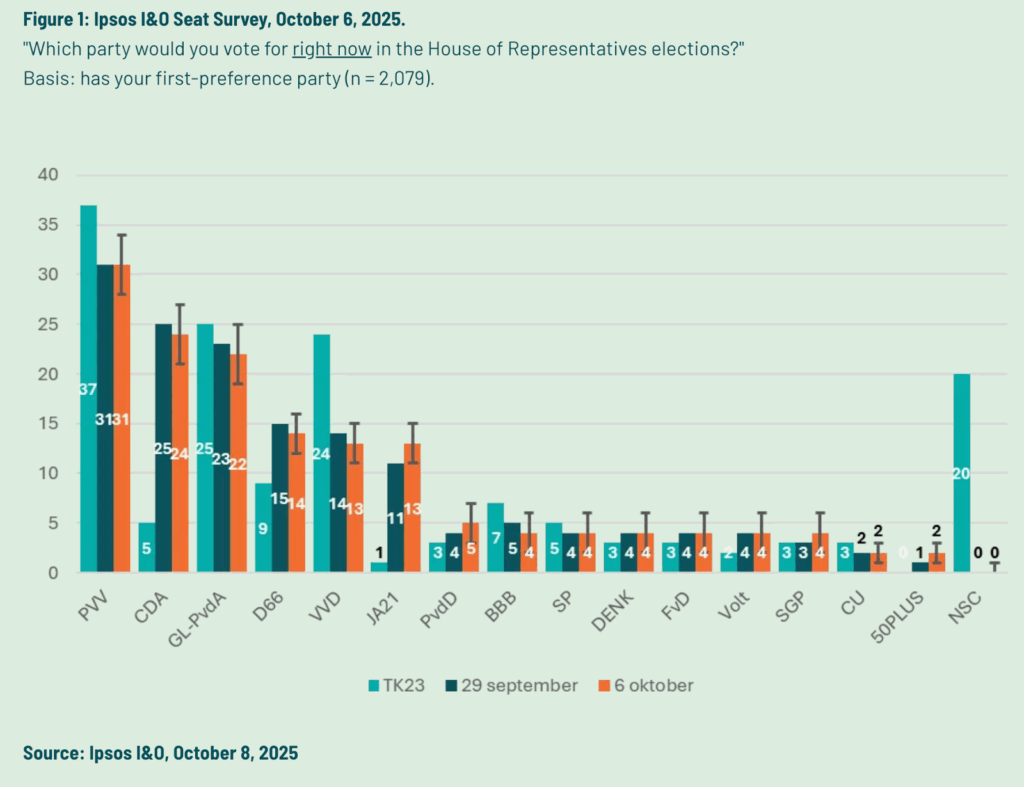
The shifting popularity of some parties from the previous coalition may signal a potential change in the composition of the next one. This could be encouraging news: the Netherlands might see a government more centrally aligned in its social and immigration policies and more open to dialogue. While the left and more progressive parties have yet to gain significant momentum (including the Dutch Pirate Party), there remains a possibility for a more moderate, centre-right coalition to emerge (rather than the previous extreme-right one).
With Dutch voters heading to the polls at the end of the month, there is still room for public opinion to evolve and for parties to rethink their alliances. For the moment, there is a cautious hope that the next Dutch government may take a more moderate path.
So how are our Dutch Pirate Party colleagues faring?
The campaign has centered around the party leader Matthijs Pontier and focused on his appearances in public debates. The Piratenpartij Podcast has featured him and other candidates in discussions on the main Pirate points, and talking about Pirate Party history, and topics in the news.
A list of posts introducing the candidates of the Dutch Pirate Party follows:


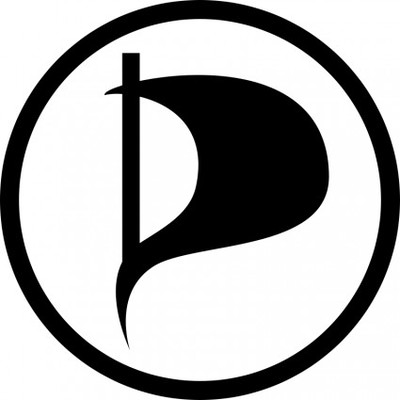



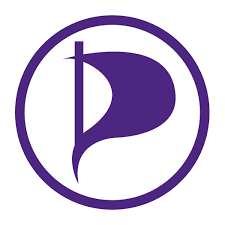
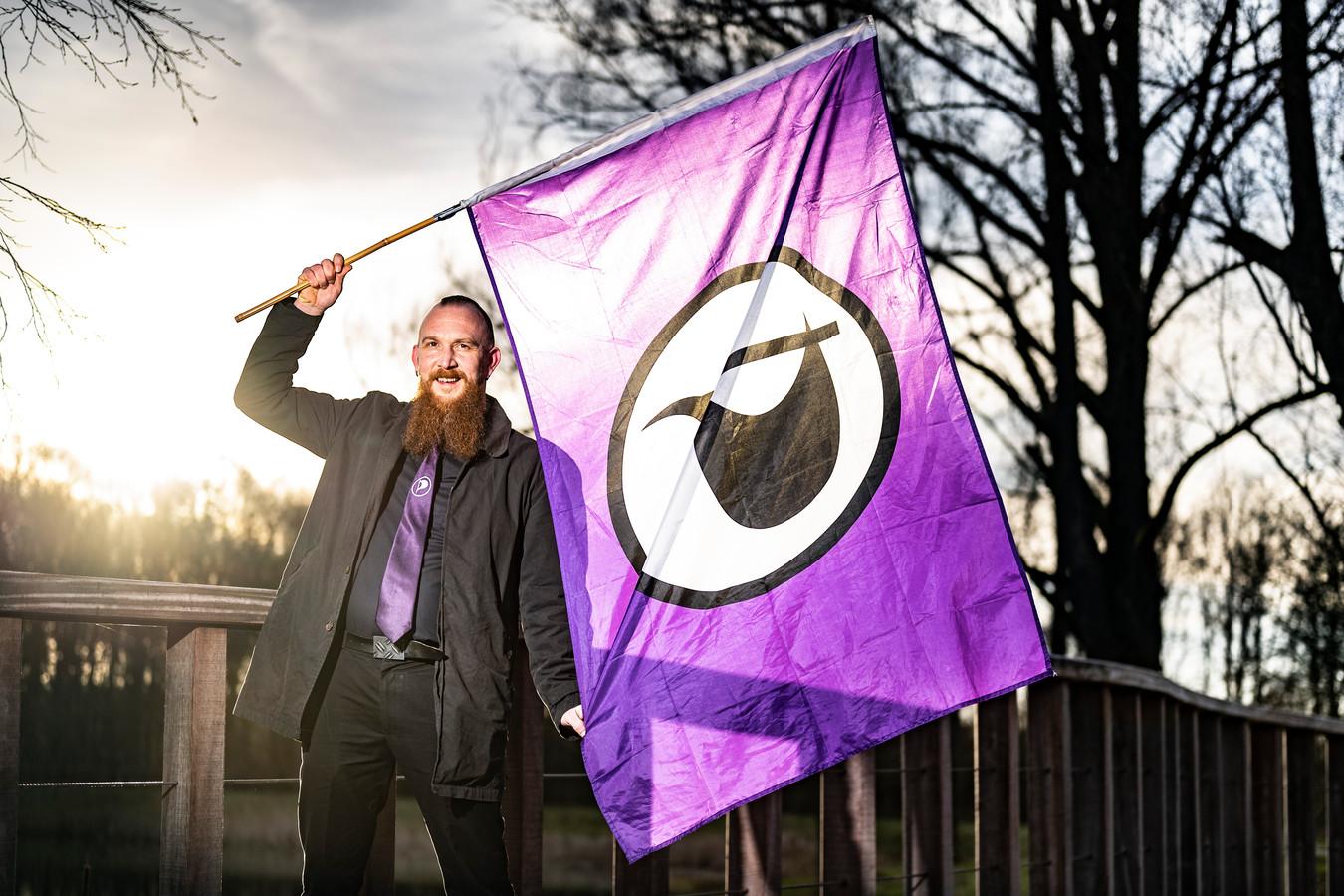
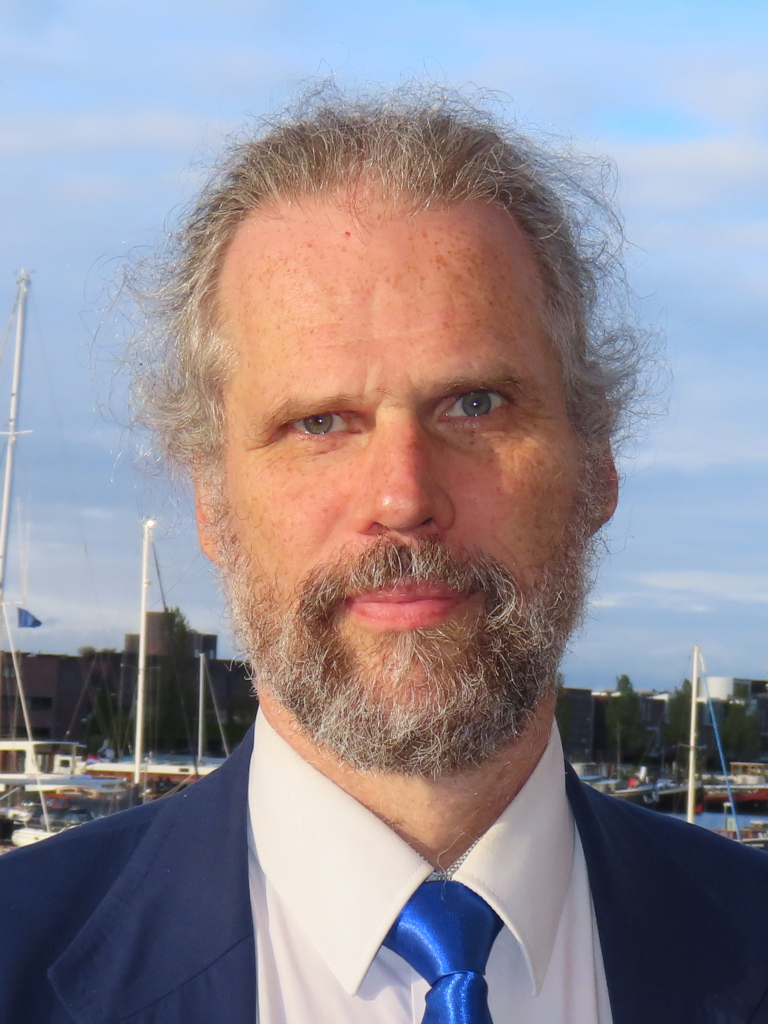
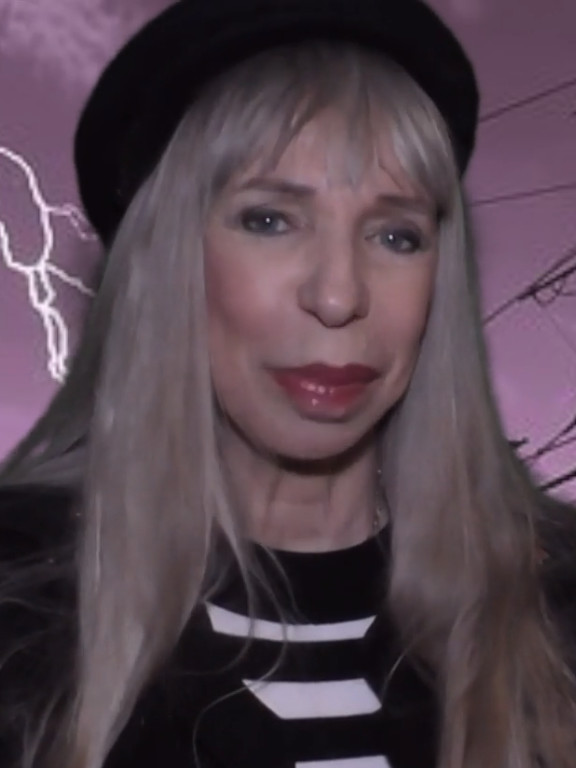
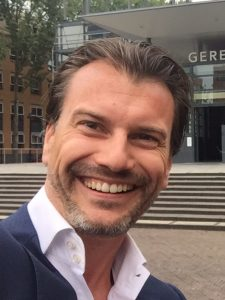

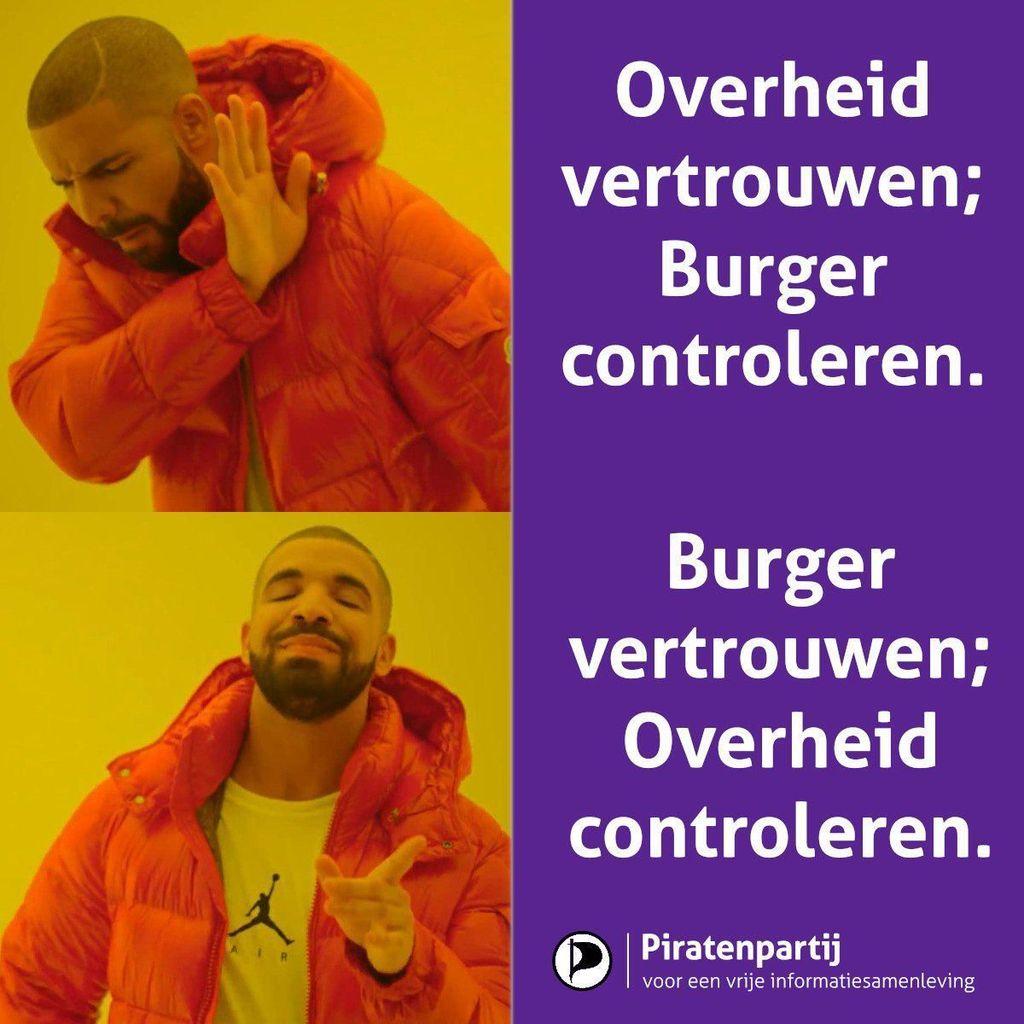
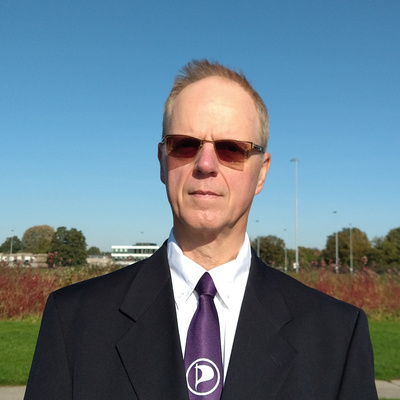
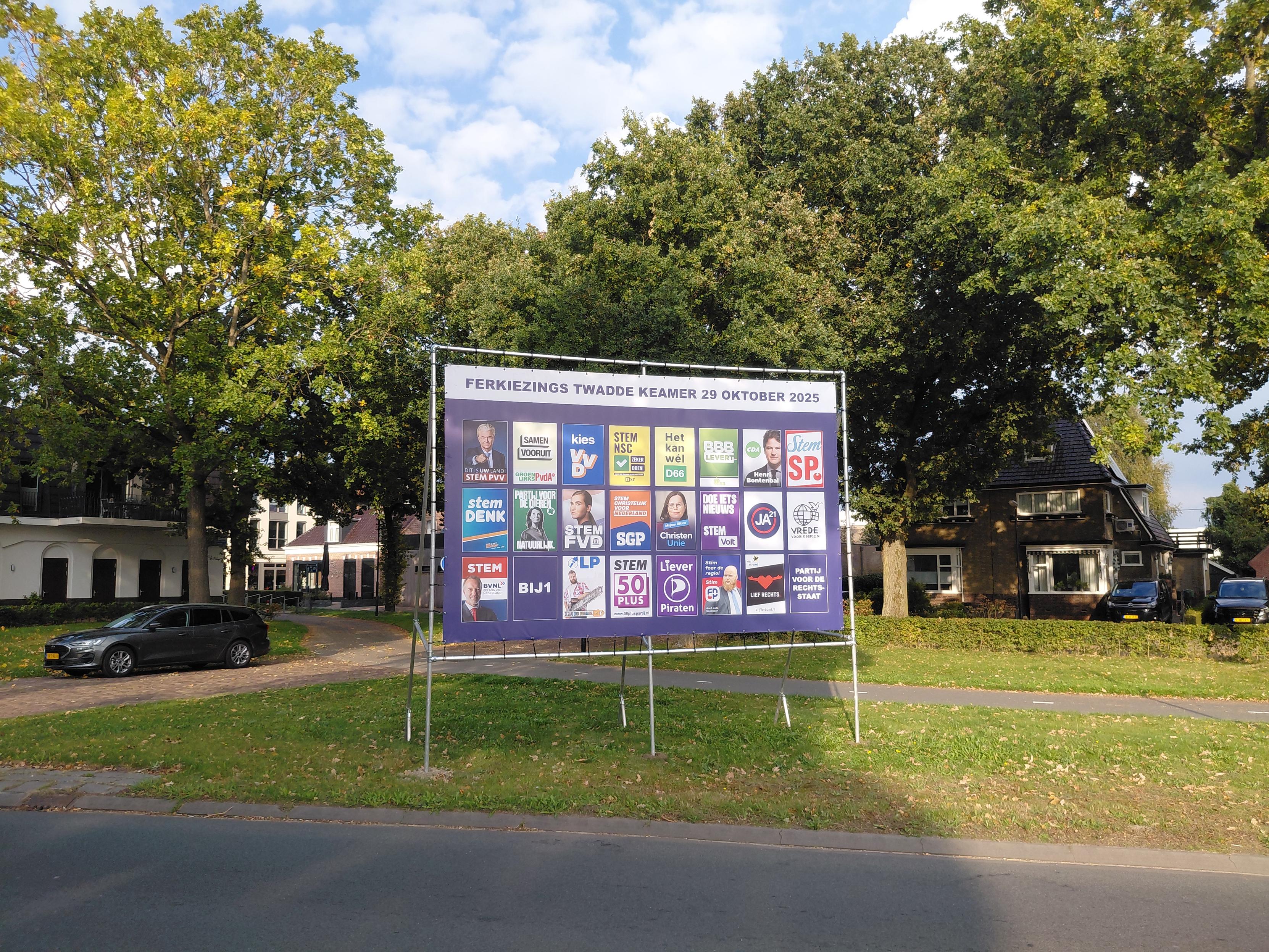
0 comments on “Upcoming Elections in the Netherlands: Will the Far Right Hold Its Ground? Will the Pirates throw soot in the FUD?”